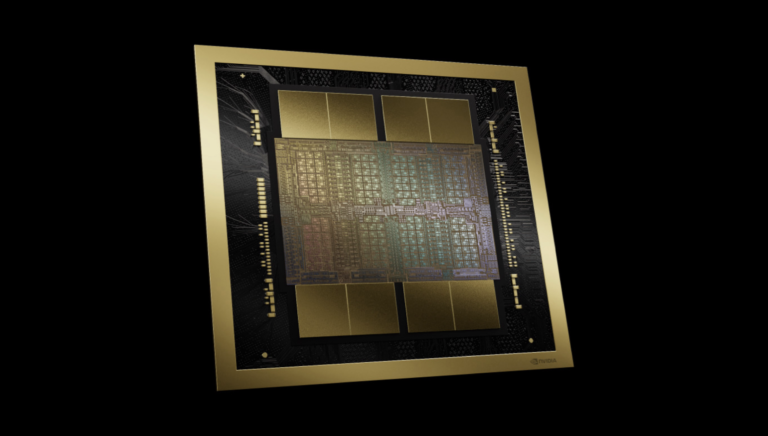NVIDIA, the world’s largest company, is reportedly developing a new artificial intelligence (AI) chip based on its flagship B200 for the Chinese market.
Mass production of the new chip, possibly called B20, will begin later this year, with shipments starting in the second quarter of next year, Reuters reported, citing sources familiar with the matter.
The report said that Nvidia plans to partner with Inspur, one of its distributors in mainland China. However, Inspur said that it has not started any business or cooperation related to the B20 at this time. The company denied the Reuters report.
According to a Reuters report, the B-20 will be designed so as not to violate US export controls.
However, it remains to be seen whether Nvidia will actually be able to launch the B20 in the end, as the US may tighten its semiconductor export ban.
QZ.com cited a research note published by analysts at Jefferies as saying that the sale of H20 chips to China is likely to be banned when the U.S. Department of Commerce conducts its annual review of export controls in October.
According to the report, the ban could be implemented in three ways: “product-specific bans, lowering computing power caps, and/or imposing memory capacity caps.”
Additionally, the U.S. may consider expanding export controls to semiconductors sold to other Asian countries, such as Malaysia, Indonesia and Thailand, or even to Chinese companies overseas, though such measures would be more difficult to implement.
The report comes after The Wall Street Journal exposed an underground network on July 2 that was smuggling the A100 into mainland China, the sale of which has been banned in China since October 2022.
According to reports, some intermediaries have set up research centers in Southeast Asian countries, such as Singapore, to purchase A100 chips from the U.S. They then pay overseas Chinese students to bring the chips back to China when they return home for holidays.
In one case, a 26-year-old Chinese student managed to smuggle six A100 chips into China in his luggage and make $100 for each.
The A100’s official retail price is around $10,000, but it’s being sold on the Chinese grey market for around $22,500, and buyers of the smuggled chips are ineligible for Nvidia’s warranty and maintenance services.
“Castration version”
In October 2022, the U.S. Department of Commerce’s Bureau of Industry and Security (BIS) banned the export of A100 and H100 chips to China. Last October, it blocked shipments of A800, H200 and other AI chips to China.
Nvidia has since launched three AI chips for the Chinese market, including H20, L20, and L2.
The H20, which has been dubbed a “neutered” version of the H100, has a single-chip performance of about 15% of that of the H100, but the product is still in strong demand from Alibaba, Tencent, Baidu and Bytedance.
The Financial Times estimates that Nvidia’s sales of H20 chips in China could reach 1 million units this year, worth $12 billion.
Shanghai-based financial news site Cailianpress.com reported that the first batches of H20 arrived in China in May and June and are currently being tested by major Chinese technology companies.
According to the website, NVIDIA’s CUDA (Compute Unified Device Architecture) platform, which can expand the capabilities of graphics processing unit (GPU) acceleration, is so powerful that many Chinese users cannot resist it.
Li Yali, a columnist at Guancha.cn, published an article on Monday titled “Will Nvidia’s H20 be banned from shipping to China?”
In her article, she said the H20 has a higher high-bandwidth (HBM) capacity than the H100 and Chinese-made AI chips, giving it an advantage in AI training and inference.
She says banning H20 exports to China is in neither China’s nor the United States’ interest.
Pressure from U.S. lawmakers
On May 9, U.S. lawmakers introduced bipartisan legislation, the Strengthening the National Framework for Foreign Critical Exports Act, aimed at making it easier for the Biden administration to enforce export controls on AI models, which the lawmakers say could reduce the risk of U.S. technology falling into the wrong hands.
The House Foreign Affairs Committee voted overwhelmingly on May 22 to send the bill to the House floor.
Chinese Foreign Ministry spokesman Lin Jian said on May 10 that instrumentalizing trade and technology issues with politics and ideology, or even pushing for the decoupling or disruption of supply chains, would only disrupt normal trade and mutual investment between China and the United States.
Related article: China to use Nvidia chips via Azure, Google Cloud
Follow Jeff Pao at @jeffpao3 on X

